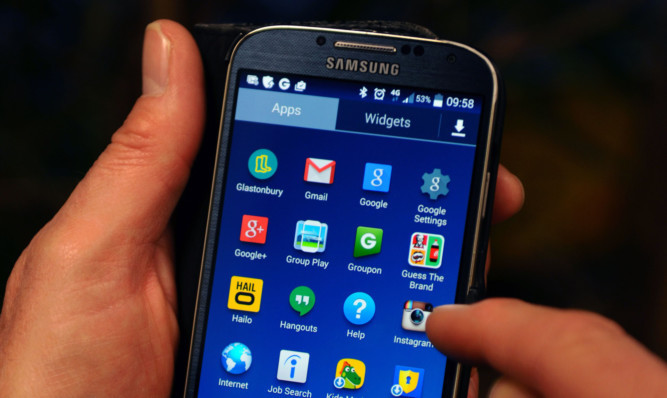Scotland is becoming a “smartphone society” as people increasingly use the devices to get online, according to a new report.
Nearly four in ten (37%) internet users in Scotland cite smartphones as the most important device for accessing the internet compared to just over a quarter (26%) for their laptop and 27% for a tablet.
In the past year smartphones have overtaken laptops as the most important device for going online, with 45% rating the laptop the most important in 2014, compared to 21% for their smartphone.
The phones are particularly favoured by younger people going online, with half of 16 to 34-year-old internet users and 45% of 35 to 54-year-olds saying they are the most important device for doing so.
The findings are contained in the Ofcom communications market report, its tenth annual review of the communications market in Scotland.
Ofcom Scotland director Vicki Nash said: “Scotland is now a smartphone society. It’s the device of choice for accessing the internet.
“I think part of the attraction is you can be mobile with a smartphone. You can be mobile with a tablet or a laptop but smartphones are much more portable and you can do whatever you want to do, whenever you want to do it, wherever you want to do it.”
She added: “For younger people they have grown up with the internet and are more confident being online.
“They have far fewer security concerns because they have grown up with it and think any way they can access it is fine. They are more likely to be buying online and banking online.”
Just over six in ten (63%) adults in Scotland now own a smartphone, slightly below the UK average of 66%.
Meanwhile, take-up of 4G service among smartphone owners has risen by 25% between 2014 and 2015 to reach 55%, higher than the UK average of 45%.
Tablets have increased in popularity in the last year, with more than half of adults (52%) now owning a tablet computer, up from 42% last year.
Internet users in Scotland now spend 19.9 hours online each week, the report found.
Almost three-quarters (73%) of households in Scotland now have access to fixed and mobile broadband at home while 59% of adults have online access through a mobile phone.
The study also found changes in the way people view TV content, with fewer people likely to watch it at the time it is transmitted as catch-up viewing becomes increasingly popular.
There was a net increase of 36% for people watching non-subscription catch-up such as iPlayer and 24% for watching content that had been personally recorded.
Meanwhile, fewer people watched TV in the traditional way, with a net drop of 34% in the number of people who watched it at the time it was broadcast.
Money spent on TV programmes for Scotland increased last year, with spending by the BBC and STV on programmes specifically for Scottish viewers rising by 29% from 2013 to reach £68.6 million in 2014.
The number of TV hours produced specifically for viewers in Scotland has increased by 57% since 2009, to 2,573 hours in 2014.
The report also found that adults living in Scotland are the least likely in the UK to send post, with more than a third (36%) saying they had not sent any in the past month.
Survey research involved 3,756 people aged over 16 across the UK, including 492 in Scotland, in January and February this year.
